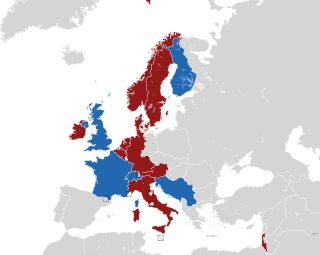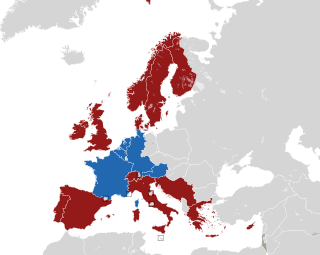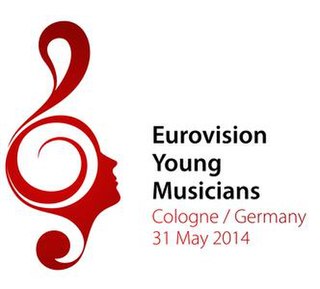
Portugal has participated in the Eurovision Song Contest 55 times since its debut at the 1964 contest. Since then it has missed five contests. The current Portuguese participant broadcaster in the contest is Rádio e Televisão de Portugal (RTP), which select its entrant with the national selection Festival da Canção. Portugal won the contest for the first time in 2017 and hosted the 2018 contest in Lisbon.

The participation of Portugal in the Junior Eurovision Song Contest started in 2006, when the Junior Eurovision Song Contest took place in Bucharest, Romania, and includes a total of nine appearances. The country was not represented at the contest between 2008 and 2016, their longest absence run, and in 2020. Rádio e Televisão de Portugal (RTP), the national public broadcaster and a member of the European Broadcasting Union (EBU), have been responsible for the selection process of their participating artists and entries. Portugal's first representative was Pedro Madeira with the song "Deixa-me sentir", which finished in second-last place out of fifteen entries. Their worst result to date came in 2018 when Rita Laranjeira placed 18th out of 20 entries with the song "Gosto de tudo ". The country's current best result is a second place obtained by Victoria Nicole with the song "Esperança" at the 2024 edition, held in Madrid, Spain.

Eurovision Young Musicians, often shortened to EYM, or Young Musicians, is a biennial classical music competition for musicians aged between 12 and 21. It is organised by the European Broadcasting Union (EBU) between members of the union, who participate representing their countries. Some participating broadcasters hold national selections to choose its representative for the contest.

The Eurovision Young Musicians 1986 was the third edition of the Eurovision Young Musicians, held at the Koncerthuset, in Copenhagen, Denmark on 27 May 1986. Organised by the European Broadcasting Union (EBU) and host broadcaster Danmarks Radio (DR), musicians from five countries participated in the televised final. Despite the contest being held in Copenhagen, host country Denmark failed to qualify for the final alongside Germany, Austria, Israel, Belgium, Norway, Ireland, Sweden, Netherlands and Italy. The participant artists could not be older than 19 by the time of the contest. The finalists were all accompanied by the Danish Radio Symphony Orchestra under the leadership of Hans Graf.

The Eurovision Young Musicians 1990 was the fifth edition of the Eurovision Young Musicians, held at Musikverein in Vienna, Austria, on 29 May 1990. Organised by the European Broadcasting Union (EBU) and host broadcaster Österreichischer Rundfunk (ORF), musicians from five countries participated in the televised final. A total of eighteen countries took part in the competition. All participants performed a classical piece of their choice accompanied by the Austrian Radio Symphony Orchestra, conducted by Pinchas Steinberg. Greece and Portugal made their début at the 1990 contest.

The Eurovision Young Musicians 2014 was the seventeenth edition of the Eurovision Young Musicians, held outside the Cologne Cathedral in Cologne, Germany, on 31 May 2014. Organised by the European Broadcasting Union (EBU) and host broadcaster Westdeutscher Rundfunk (WDR), musicians from fourteen countries participated in the televised final. This was the fifth time that the competition was held on an open-air stage. Germany previously hosted the contest in 2002.

Austria has participated in the biennial classical music competition Eurovision Young Musicians 19 times since its debut in 1982 and is the most successful country in the contest, with a total of six wins. Austria has hosted the contest a record six times, in 1990, 1998, 2006, 2008, 2010, and 2012.

The United Kingdom has participated in the biennial classical music competition Eurovision Young Musicians sixteen times since its debut in 1982. The British participant broadcaster in the contest is the British Broadcasting Corporation (BBC). They hosted the inaugural contest in 1982 and won the contest in 1994. They returned to the contest in 2018 after a 8-year absence as hosts, but did not return for the next editions in 2022 or 2024.

Norway has participated in the biennial classical music competition Eurovision Young Musicians 19 times since its debut in 1982, winning the contest for the first time in 2012. Norway did not officially take part in 1984, the only contest the country has missed as of 2022. It hosted the contest in 2000 and did so again in 2024.

Sweden has participated in the biennial classical music competition Eurovision Young Musicians 15 times since its debut in 1986, winning the contest for the first time in 2006. Sweden are yet to host the contest.

France has participated in the biennial classical music competition Eurovision Young Musicians eleven times since its debut in 1982. France won the contest in 1986, and hosted the 2022 edition in Montpellier.

Finland has participated in the biennial classical music competition Eurovision Young Musicians 13 times since its debut in 1984, most recently taking part in 2008. The country's best result is three second-place finishes, in 1984, 2000 and 2008.

Belgium has participated in the biennial classical music competition Eurovision Young Musicians 11 times since its debut in 1986, most recently taking part in 2024. The country's best result is two third-place finishes, in 1990 and 1992; two of only four years in which the country has qualified for the televised final. Belgium hosted the contest in 1992.

Italy has participated in the biennial classical music competition Eurovision Young Musicians 4 times since its debut in 1986, most recently taking part in 2002.

Yugoslavia participated in the biennial classical music competition Eurovision Young Musicians 4 times, making their debut in 1986 and made appearances at every contest until its last in 1992.

Denmark has participated in the biennial classical music competition Eurovision Young Musicians seven times since its debut in 1986, most recently taking part in 2002. Denmark hosted the contest in 1986.

Ireland has participated in the biennial classical music competition Eurovision Young Musicians 4 times since its debut in 1986, most recently taking part in 1994. Ireland have failed to reach the final in every contest to date.

Israel made their Eurovision Young Musicians debut at the Eurovision Young Musicians 1986, where they failed to qualify for the final.

Portugal has participated in the Eurovision Young Dancers 4 times since its debut in 1989. The Portuguese participant broadcasters in the contest were Radiotelevisão Portuguesa (RTP) in 1989 and 1991; and Rádio e Televisão de Portugal (RTP) in 2011 and 2017.

The Eurovision Young Musicians 2016 was the eighteenth edition of the Eurovision Young Musicians contest, which took place on 3 September 2016, outside the Cologne Cathedral, in Cologne, Germany. For a second consecutive time, German public broadcaster Westdeutscher Rundfunk (WDR) was the host broadcaster for the event, with Daniel Hope and Tamina Kallert being the presenters for the show. Musicians representing eleven countries with European Broadcasting Union (EBU) membership, participated in the contest, with San Marino making their debut, while Greece, Moldova, Netherlands, and Portugal decided not to participate in this edition. The candidates were accompanied by the WDR Symphony Orchestra Cologne, conducted by Clemens Schuldt. A five-person jury decided which of the participants would be awarded with the top-three prizes. Łukasz Dyczko of Poland won the contest, with Czech Republic and Austria placing second and third respectively.



















